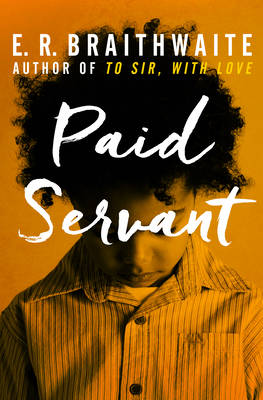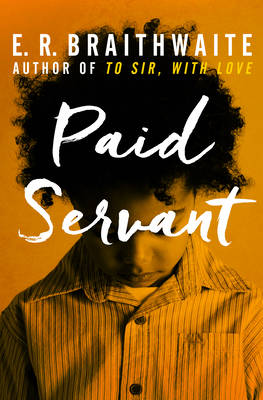
Bedankt voor het vertrouwen het afgelopen jaar! Om jou te bedanken bieden we GRATIS verzending (in België) aan op alles gedurende de hele maand januari.
- Afhalen na 1 uur in een winkel met voorraad
- Gratis thuislevering in België vanaf € 30
- Ruim aanbod met 7 miljoen producten
Bedankt voor het vertrouwen het afgelopen jaar! Om jou te bedanken bieden we GRATIS verzending (in België) aan op alles gedurende de hele maand januari.
- Afhalen na 1 uur in een winkel met voorraad
- Gratis thuislevering in België vanaf € 30
- Ruim aanbod met 7 miljoen producten
Zoeken
Omschrijving
E. R. Braithwaite, the acclaimed author of To Sir, With Love, poignantly recounts his time as a social worker dedicated to London's abandoned minority children
Despite his Cambridge education and a sterling record with the British Royal Air Force during World War II, E. R. Braithwaite, a black man, was unable to find employment as an engineer in post-war London. Instead he accepted a position as a teacher in a tough East End school and wrote of his experiences in his classic bestseller To Sir, With Love. Nine years later, Braithwaite once again found himself assuming an unfamiliar professional role as a social worker charged with finding homes for London's orphaned, abused, or abandoned "coloured" children. While he lacked formal training, Braithwaite possessed qualities essential for the job: compassion, determination, and a deep, abiding understanding and love for the helpless, lost, and disregarded.
In Paid Servant, E. R. Braithwaite shares his experiences in London's Department of Child Welfare, focusing on the case of his four-year-old client Roddy, a bright, handsome mulatto boy who was rejected for adoption by both black and white families because he was not their "own kind." Everywhere he turned, Braithwaite encountered racial prejudice. But he was willing to fight for what he believed in, and he believed in Roddy. Writing with great power, warmth, and a deep belief in human dignity and worth, Braithwaite offers a heartbreaking yet hopeful look into a society's attempt to care for its youngest, most vulnerable citizens.
Despite his Cambridge education and a sterling record with the British Royal Air Force during World War II, E. R. Braithwaite, a black man, was unable to find employment as an engineer in post-war London. Instead he accepted a position as a teacher in a tough East End school and wrote of his experiences in his classic bestseller To Sir, With Love. Nine years later, Braithwaite once again found himself assuming an unfamiliar professional role as a social worker charged with finding homes for London's orphaned, abused, or abandoned "coloured" children. While he lacked formal training, Braithwaite possessed qualities essential for the job: compassion, determination, and a deep, abiding understanding and love for the helpless, lost, and disregarded.
In Paid Servant, E. R. Braithwaite shares his experiences in London's Department of Child Welfare, focusing on the case of his four-year-old client Roddy, a bright, handsome mulatto boy who was rejected for adoption by both black and white families because he was not their "own kind." Everywhere he turned, Braithwaite encountered racial prejudice. But he was willing to fight for what he believed in, and he believed in Roddy. Writing with great power, warmth, and a deep belief in human dignity and worth, Braithwaite offers a heartbreaking yet hopeful look into a society's attempt to care for its youngest, most vulnerable citizens.
Specificaties
Betrokkenen
- Auteur(s):
- Uitgeverij:
Inhoud
- Aantal bladzijden:
- 278
- Taal:
- Engels
Eigenschappen
- Productcode (EAN):
- 9781480457713
- Verschijningsdatum:
- 14/01/2014
- Uitvoering:
- Paperback
- Formaat:
- Trade paperback (VS)
- Afmetingen:
- 133 mm x 203 mm
- Gewicht:
- 322 g

Alleen bij Standaard Boekhandel
+ 65 punten op je klantenkaart van Standaard Boekhandel
Beoordelingen
We publiceren alleen reviews die voldoen aan de voorwaarden voor reviews. Bekijk onze voorwaarden voor reviews.









